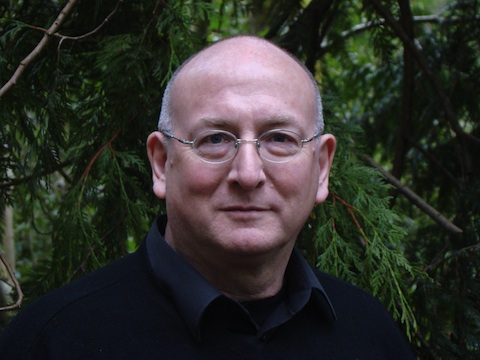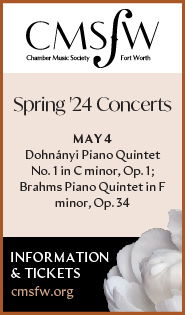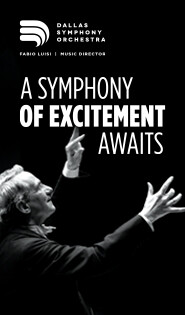Young countertenor provides highlights in Houston Symphony’s majestic “Messiah”

Stephen Stubbs conducted the Houston Symphony and Chorus in Handel’s “Messiah” Friday night at Jones Hall.
Handel’s Messiah is one of the most performed musical works of all time. Composed in 1741 after only 24 days, the oratorio is based on biblical text and requires an orchestra, chorus, four soloists, and conductor. The 47 sections each have their own moods and themes, with arias alternating with choruses. Usually performed around Christmas and Easter, it is a narrative about the life of Jesus (though, oddly, he is never quoted directly). Only the voice of God speaks directly to the listener in the form of a bass soloist.
The Houston Symphony’s presentation of the complete three-part work Friday night at Jones Hall made for an outstanding performance, with each of the elements contributing to the overall success.
Conductor and harpsichordist Stephen Stubbs led a historically informed rendition, devoid of the bloated and vibrato-enhanced practices of the past. Phrasing, dynamics, and musical nuances were clearly crafted. He favored softer section endings, and his tempos were brisk, sometimes stretching the capabilities of soloists and chorus.
Stubbs led a reduced-size Houston Symphony ensemble, which played cleanly and alertly, adroitly adjusting their speed and volume as directed. Timpanist Brian Del Signore was precise and committed in the grand final cadences.
The four vocal soloists are all seasoned artists in Baroque repertoire. After a slightly tentative beginning, tenor Thomas Cooley showed a strong voice that was most expressive in four consecutive numbers in the Second Part, describing Jesus’ suffering, which Cooley conveyed through expert vocalization.
Bass-baritone Kevin Deas was a formidable presence. His pacing was deliberate and rhythmically poised. He sang with unforced majesty in “Thus saith the Lord of Hosts” and “The people that walked in darkness.” “Why do the nations so furiously rage together?” was thrillingly done by Deas and the orchestra, with his “Behold, I tell you a mystery” rounding out the bass’s superb contributions.
Soprano Tesesa Wakin displayed a pretty voice and effortless coloratura, but was somewhat uneven throughout the performance. She favored tonal beauty over clear diction, and her vocalism often needed more energy, as in “And suddenly there was with the angel.” “I know that my Redeemer liveth” displayed some pitch issues.

Jakub Józef Orlinski. Photo: Anita Wasik
The standout of the evening was Polish countertenor Jakub Józef Orliński. Every note he sang and each expressive element of his arias was spectacularly executed. “But who may abide” had a tender opening with a magical tone. Register changes were seamless and effortless. In “He was despised” Orliński sang with understated emotion that drew the listener in, plumbing a striking level of expressive pathos. This young singer, still a student at Juilliard, clearly has an exciting future.
The Houston Symphony Chorus was expertly prepared by director Betsy Cook Weber. The chorus has been shaped into a cohesive ensemble with excellent pitch and balance, and a wonderful degree of articulation and expression.
The chorus was impeccably balanced with the soloists throughout. The ensemble was buoyant in “And the Glory of the Lord,” and showed excellent use of coloratura in “For unto us a child is born” and “And he shall purify.” “Surely, He hath borne our griefs” was thoughtfully and precisely articulated and shaped.
Less successful were “Let us break their bonds asunder,” and the “Hallelujah” chorus, which was curiously lackluster compared to the rest of the choral sections.
The conductor used a string quartet in the parts of the arias where indicated senza ripieni by Handel. Here, cellist Christopher French contributed excellent playing and a solid foundation, as well as in the continuo parts with organ or harpsichord. Orchestral unisons were wonderfully on pitch, and balance with the chorus and soloists excellent. The Pifa, or Pastoral Symphony, was sensitively performed at a faster tempo than usual, and trumpeter John Parker gave a spectacular ornamented solo in “The trumpet shall sound.”
The Messiah will be repeated 8 p.m. Saturday and 2:30 p.m. Sunday. houstonsymphony.org


